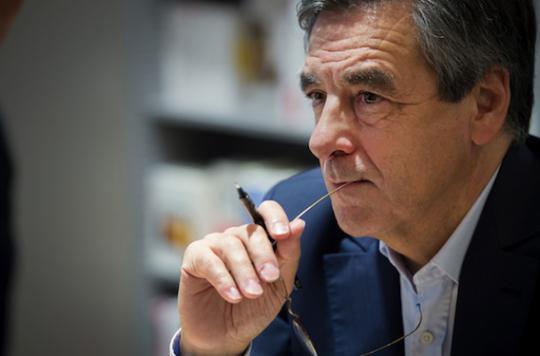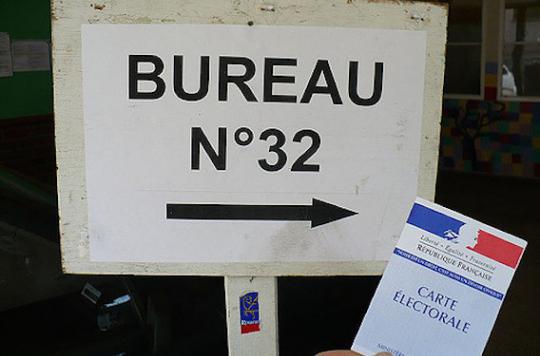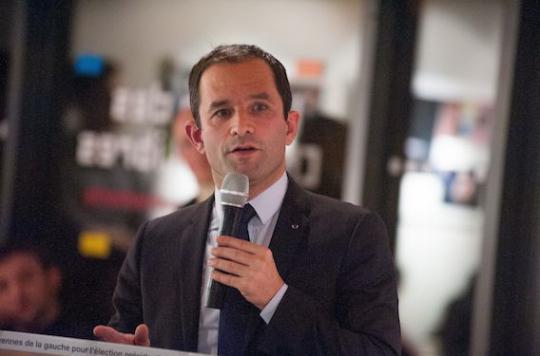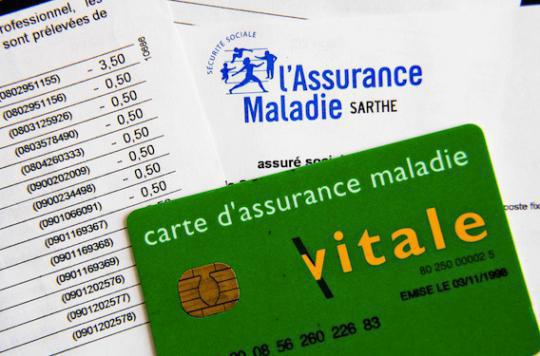The candidates for the primary of the right and the center answer the questions of Pourquoidocteur. This Tuesday, it is the turn of Jean-Frédéric Poisson, president of the Christian Democratic Party.
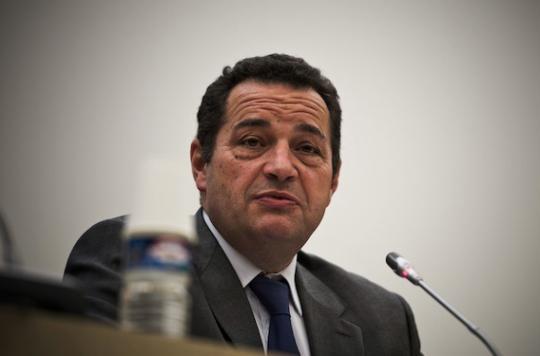
While the right and center primary for the presidential election will take place on November 20 and 27, the time for the first of three television debates is fast approaching. With a river duration of 2h30, it will take place on October 13 on TF1, RTL, Public Senate and LCI. It will see the seven competitors compete against each other on the themes of unemployment and security. And what about health?
In a recent poll, 69% of French people make this theme a major element of the campaign. And almost the same proportion of those questioned considers that the positions of the candidates on health policy will be decisive in their choice.
To meet the expectations of future voters, the drafting of Why actor interviewed all candidates by asking them the same questions. This Tuesday, the series continues with Jean-Frédéric Poisson, the President of the Christian Democratic Party. Does the man who claims to be a practicing Catholic want to sanctify the theme of health, which is sometimes forgotten in political debates. Opening of the PMA, support for therapeutic innovation, medical deserts, the MP for Yvelines takes a stand.
The community will no longer be able to cover the cost of innovative drugs. Should we devote a specific budget to the support of these therapies, and how to finance it?
Jean-Frédéric Poisson : On this subject as on the others, the financing system must be at the service of the person and not the other way around. However, before considering a specific financing solution for these therapies, we must clearly and independently measure the degree of real innovation of these treatments. Each year, 80% of drugs presented as innovative do not actually bring any progress on the therapeutic level. And often, they simply duplicate drugs already on the market. I stress that this assessment must be done independently and in a process protected from special interests.
In addition, the budgetary situation in France obliges us to reassess the hierarchy of our priorities in terms of reimbursement of care. A certain number of reimbursements for medical acts should not systematically fall under national solidarity. I am thinking of certain free care, contraception, assisted reproduction or even abortion. I would add on this subject that apart from these budgetary considerations, the drop in the number of abortions in France is, in my opinion, a matter of public health.
 |
Medication
|
The complementary health insurance is committed to an insurance model à la carte. Should we financially encourage policyholders who have a healthy lifestyle (diet, physical activity, etc.) and / or penalize those who take risks (alcohol, tobacco, etc.)?
Jean-Frédéric Poisson : I am resolutely opposed to this development, which is one more step towards a health system run by mutuals in which they will impose their criteria for support. We would abandon a universal solidarity system for a classification system which would result in a form of classification of the insured and the insurable. We can clearly see the serious drifts towards which this type of reasoning could lead us.
There is a temptation there that crosses our entire time and which is the heart of the target of my fight: that of reducing human beings to an economic adjustment variable. The dignity of a person and his right to benefit from national solidarity cannot be based on criteria established by private bodies. Moreover, I would like to emphasize that a system where one controls the physical activity and the quality of food of the citizens would have sadly Orwellian tones. This is still a very current temptation to which we must be particularly vigilant. However, it is essential to develop a preventive culture, especially with regard to occupational health and suicide.
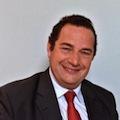 |
Supported
|
The hospital must simultaneously reconcile medical excellence with its social missions. In view of the budgetary constraints, does activity-based pricing (T2A) appear to you to be suited to this dual requirement?
Jean-Frédéric Poisson : With activity-based pricing, we see the logic of means giving way to the logic of results. Obviously, this is not, in itself, a reprehensible objective, but as you say, the honor of our system is to combine the social aspect with medical performance. However, where efficiency and profitability take up too much space, that granted to humans is reduced accordingly. This is not what I want for our country.
In addition, the T2A presents some disadvantages for the actors of the health field: its complexity, the instability of the rules and the lack of visibility complicate any projection for the establishments.
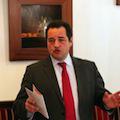 |
Medical deserts
|
One in four general practitioners will not be replaced by 2025. How do you plan to fight against medical deserts?
Jean-Frédéric Poisson : The problem of medical desertification finds its origin in a multiplicity of factors: the refusal of too many constraints on custody, the loss of the sense of vocation, the refusal of isolation … General practitioners are bowing under a considerable mass administrative demands from which they must be freed in order to allow them to concentrate on their real vocation.
It would be advisable to translate into social or tax reductions the specificities of the practice of medicine according to the place of activity, and this over the long term, and not over the first few months of installation. In addition, I intend to develop, including through experiments, medical centers in rural areas as well as telemedicine.
 |
Assisted reproduction
|
In a manifesto, French doctors admitted having helped lesbian couples and single women to resort to assisted reproduction abroad. Can we continue to reserve it for heterosexual couples?
Jean-Frédéric Poisson : First of all, let us recall that if the PMA for lesbian couples are still illegal in France, the Court of Cassation authorized in 2014 that a child born by medically assisted procreation carried out abroad be adopted in France by the companion of his mother. French legislation on these subjects is only a facade.
In addition, I am firmly opposed to opening the assisted reproduction to same-sex couples. It is one thing to use it to solve a medical infertility problem, another is to claim a right to the child in the name of equality. Once again, if we take equality as a criterion of accessibility to assisted reproduction for lesbian couples, then, in the name of this same criterion, it will be necessary to automatically legalize Surrogacy (Surrogacy) under the pretext that couples of men would be in a situation of inequality. However, I am against the use of surrogate mothers, which is a form of modern slavery.
Tomorrow find our interview with Nicolas sarkozy
.








